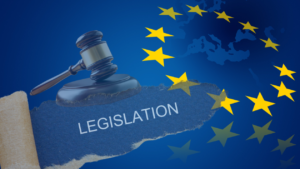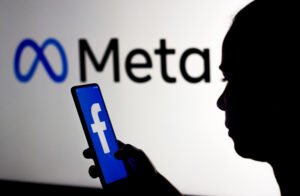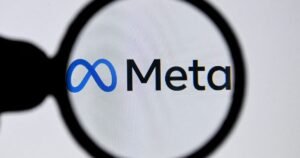In a momentous twist of fate, Meta Platforms, the corporate progenitor of the social media behemoth Facebook, finds itself teetering on the precipice of an imminent EU prohibition on targeted advertising. This development materializes in response to mounting anxieties regarding data privacy and the extensive exploitation of personal data for advertising endeavors. In the subsequent discourse, we shall meticulously explore the repercussions for Meta, delving into the recent embargo imposed by Norway and Meta’s counteractions in the face of these formidable challenges.
 The EU Prohibition on Targeted Advertising
The EU Prohibition on Targeted Advertising
At the vanguard of enforcing stringent regulations designed to safeguard the privacy of its constituents, the European Union has fervently pursued measures to curtail the practice of targeted advertising. This stratagem involves harnessing users’ personal data to disseminate tailored advertisements. The EU’s unwavering stance on data privacy has led to the contemplation of a categorical prohibition on this advertising paradigm. Should this prohibition come to fruition, Meta could find itself ensnared in substantial fines, conceivably amounting to 4% of its global revenue, in strict accordance with EU statutes. This looming prospect poses grave financial jeopardy for the technological titan, given the vast expanse of its global operations.
The Enigma of Targeted Advertising

Targeted advertising, a digital marketing methodology, exploits user data to individualize advertisements predicated on an individual’s proclivities, behaviors, and virtual engagements. This approach necessitates the meticulous collection and scrutiny of user information, ranging from search history and geographical location to demographic details. This method, while striving for enhanced ad relevance and heightened conversion probabilities for advertisers, has found itself under intense scrutiny due to apprehensions about privacy and data preservation.
The Trespass of Privacy in Targeted Advertising
The accrual and exploitation of user data for targeted advertising have given rise to myriad privacy apprehensions. This approach harbors the potential to breach individuals’ privacy in several disconcerting ways:
- Data Harvesting: Targeted advertising hinges on the exhaustive aggregation of personal data, spanning users’ online comportment, location, and even sensitive particulars. The sheer magnitude of this data gathering engenders perilous possibilities of breaches and misuse.
- Consent Vacuity: Users, on numerous occasions, divulge their data unwittingly or without explicit consent, often oblivious to the manner in which their information is harnessed. This paucity of transparency begets ethical quandaries.
- Intrusive Tracing: To craft meticulous user profiles, tracking technologies relentlessly tail individuals across the digital terrain, rendering it arduous for users to evade the clutches of targeted advertisements.
- Muddled Personalization: Occasionally, personalized ads veer into the realm of excess, exhibiting advertisements for sensitive subjects or products, eliciting discomfort or offense among users.
- Potential for Discrimination: Targeted advertising, albeit inadvertently, can propagate discriminatory practices, disproportionately targeting specific demographics or even excluding certain groups from opportunities.
In light of these concerns, regulatory authorities within the European Union have adopted a resolute stance against the practices inherent in targeted advertising.
Ramifications for Meta

The prospective EU prescription on targeted advertising harbors profound implications for Meta. This advertising modus operandi constitutes the cornerstone of the company’s revenue architecture, facilitating the dissemination of meticulously tailored advertisements to users based on their predilections, behaviors, and demographics. The imposition of a ban would disrupt Meta’s advertising endeavors, compelling a reassessment of its revenue generation strategies. Furthermore, Meta’s dependency on targeted advertising has elevated it to a preeminent position in the digital advertising panorama. Any encumbrance upon this practice could potentially reverberate across the broader advertising domain, impacting not only Meta but also the advertisers reliant on its platform.
Additionally, the financial ramifications of non-compliance are staggering. A prospective fine amounting to 4% of Meta’s global revenue underscores the urgency for the company to redress these concerns and explore alternative revenue streams.
Norway’s Daily Fine for Privacy Transgressions
The EU prohibition is not the sole challenge confronting Meta; it is currently grappling with a daily embargo imposed by Norway, accentuating concerns regarding user privacy breaches. This embargo specifically targets Meta’s data aggregation practices, critiqued for their intrusive nature and potential detriment to user privacy. Norway’s expeditious response to privacy apprehensions serves as a stark warning to Meta and other technology entities, signaling meticulous oversight by regulatory bodies. This swift action accentuates governmental readiness to safeguard their citizenry’s data and privacy entitlements.
Meta’s Response
In a riposte to the regulatory quandaries and embargoes, Meta has vociferously reaffirmed its commitment to user privacy and data sanctity. The company has proffered promises to augment its advertising practices, aligning them with the burgeoning regulatory landscape and user anticipations. Among the key measures and alterations that Meta has proposed or executed are:
- Enhanced Consent Protocols: Meta is diligently enhancing its user consent procedures, ensuring comprehensive user enlightenment regarding the utilization and purpose of their data.
- Data Curtailment: The conglomerate is exploring methodologies to curtail the volume of data it accrues, thereby mitigating the risk of breaches and misuse.
- Heightened Transparency: Meta is staunchly committed to augmenting transparency in its data administration and advertising techniques, addressing prevailing concerns surrounding ambiguity and comprehension.
- User Empowerment: Meta intends to empower users with increased control over their data, enabling them to refine their advertising experience to a greater degree.
- Regulatory Adherence: Meta is actively engrossed in adhering to extant and emerging regulations, ensuring continued operation across diverse regions sans bans or sanctions.
Conclusion

Meta, the progenitor of Facebook, finds itself at a critical juncture, teetering on the brink of an EU ban on targeted advertising and grappling with daily embargoes from nations such as Norway. These occurrences underscore the escalating emphasis on data privacy and user data preservation in this digital epoch. The ramifications for Meta are profound, extending from potential fiscal penalties to the imperative for a paradigmatic shift in its advertising stratagems. These challenges are poised to impel Meta toward innovation and adaptation in the face of a dynamically evolving landscape, potentially eliciting far-reaching effects across the advertising milieu.
As Meta navigates these turbulent waters, the company’s response and actions will be closely monitored, not only by regulators but also by users and advertisers worldwide. The outcome of this saga will not only shape the future of Meta but also influence the broader conversation around data privacy and targeted advertising in the digital realm.











Comments 1